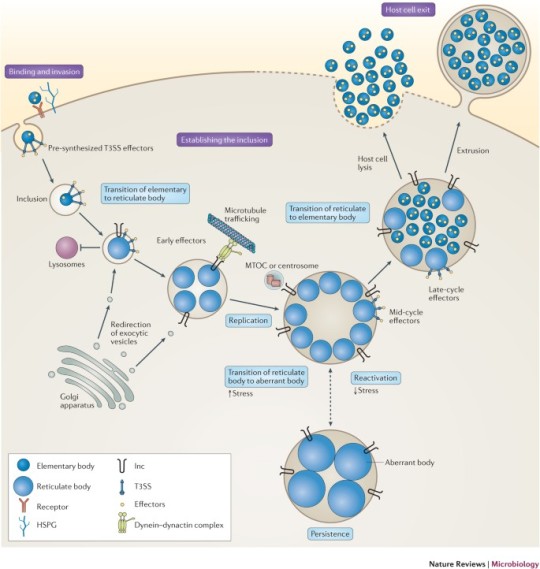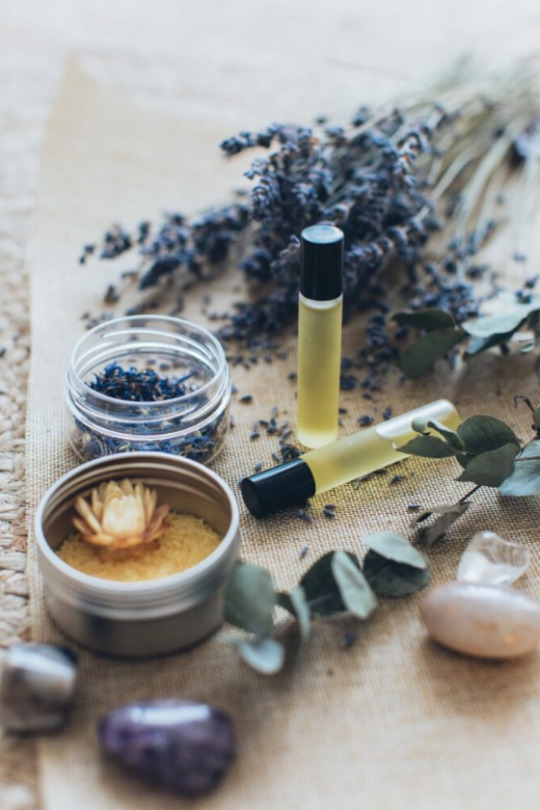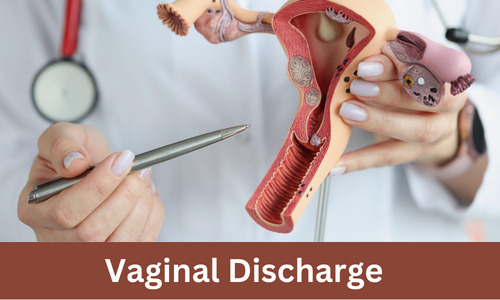#treat bacterial vaginosis naturally
Note
Any vagina related tips?
ya sure “feminine wash” is a scam don’t use it, anything with fragrance is a scam, ur vagina cleans itself, you only need water and if water isn’t enough for you to feel “normal” that means u have a ph imbalance that can only be treated with antibiotics or cream specifically designed to be ingested or put on / around the labia NEVER inside, further problems require an inspection from a doctor or better yet a obgyn, things like soda or too much sugar intake or wearing underwear that’s tight or detergent that has too many chemicals can throw off ur ph, it happens and it can happen for any reason, no one with a vagina has gone their entire life without throwing their ph off atleast once or getting a uti or yeast infection, it’s going to happen eventually and it’s normal, both of those infections r the result of ur vagina trying to restore order and being unable to which is where doctors come in not feminine wash, pineapple juice and cranberry juice will not make u taste sweet, they only add a taste on top of ur natural taste, vaginas r organs they won’t taste like candy or smell like flowers they aren’t supposed to and anyone that tells u otherwise is just trying to sell to u, u shouldn’t be using scented sprays down there, even baby powder is pushing it depending on the brand, try sleeping without underwear once a week to let ur vagina breathe or wear cotton underwear more often, most ph problems come when the vagina can’t properly “air” itself out while cleaning itself, drinking water is important ofcourse, 1 in three people with vaginas will have bacterial vaginosis in their lifetime and it’ll often be reoccurring, meaning having a vagina that’s out of whack is normal for a majority of the population, pee after sex even if u only got head, water based lubricant is ur friend and less likely to irritate ur canal, um make sure to wipe from front to back, refrain from waxing the bikini area ur more prone to infections that way and don’t let porn convince u vaginas all look one way / have to look a certain way, a lot of what u see in popular pornos r vaginas that have had labia surgery bleaching and lazer hair removal, urs is normal looking i promise
63 notes
·
View notes
Note
are boric acid suppositories bad? I've heard they're good at stopping yeast infections before they get too bad
okay so boric acid suppositories are great when used sparingly and as intended, like for balancing out vaginal acid to treat things like yeast infections, as you mentioned, and bacterial vaginosis.
el problema happens when people start getting a little too willy nilly in their usage, which is being encouraged by a lot of """wellness""" influencers rn who are trying to spin boric acid suppositories as something you should just be popping in your vagina all the time for vaguely defined health reasons, particularly as a means of odor control. so basically we've got douching 2.0, where people w/ vaginas are being convinced that their vaginas aren't just fine as they are naturally and the fix for that is a product that (surprise) will actually significantly fuck up your vagina and make you WAY more prone to worse infections than you were before. like @dressesandalchemy said, it's a great way to wipe out all the NECESSARY AND IMPORTANT bacteria in your vagina all at once, leaving the whole system vulnerable.
selling that kind of product alongside uwu ~natural~ herb-infused pads that are going to do nothing at best and cause vaginal problems at worst is also so SO shady, I truly hate this wave of bullshit "it's natural so it must be good for you" health trends so much.
24 notes
·
View notes
Photo

The answer to yesterday's question about the treatment of bacterial vaginosis is metronidazole 500mg PO BID x7 days OR metro gel 0.75% 5g per vagina daily x5 days OR clindamycin cream 2% 5g per vagina qHS x7 days. The warning against consuming alcohol while taking oral Flagyl is actually based on anecdata and not clinical studies.
Today's sexually transmitted infection (STI) is chlamydia. Chlamydia trachomatis has both extra- and intracellular forms. The extracellular form is the infectious one, but it is inert, so it doesn't take up antibiotics. Therefore, to kill it requires an antibiotic with intracellular penetration for the length of the bacterium's life cycle (36 to 48 hours). Chlamydia is susceptible to tetracyclines like doxycycline and macrolides like azithromycin because these interfere with protein synthesis: tetracyclines work by binding to the 30S ribosomal subunit, while macrolides bind to the 50S ribosomal subunit.
So how do we treat chlamydia?
Image Source: Nature Reviews
2 notes
·
View notes
Text
Digestive Dynamics: Probiotics for a Balanced Microbiome
The balance of our gut microbiome plays a crucial role in our overall health. Probiotics, often referred to as "good" bacteria, are essential in maintaining this balance and promoting digestive health. Understanding how probiotics work and their various types can help us make informed decisions for a healthier lifestyle. Nookoffers valuable insights into the world of probiotics, emphasizing their significance in maintaining a balanced microbiome.
The Role of Probiotics in Digestive Health
Probiotics are live microorganisms that provide numerous health benefits when consumed in adequate amounts. They help maintain the balance of the gut microbiome, which is essential for efficient digestion and nutrient absorption. Probiotics also play a role in preventing and managing digestive disorders such as irritable bowel syndrome (IBS), diarrhea, and constipation.
Types of Probiotics and Their Benefits
Understanding the different types of probiotics and their specific benefits can help you choose the right one for your needs:
Lactobacillus: This is one of the most common probiotic types, found in yogurt and other fermented foods. Lactobacillus helps break down lactose, the sugar in milk, and enhances digestive health. It is particularly effective in alleviating diarrhea and improving gut function.
Bifidobacterium: Found in some dairy products, Bifidobacterium helps ease symptoms of irritable bowel syndrome (IBS) and supports overall gut health. It also aids in combating harmful bacteria and boosting the immune system.
Saccharomyces boulardii: A yeast probiotic, Saccharomyces boulardii is known for its effectiveness in treating and preventing diarrhea. It supports intestinal health and helps manage gastrointestinal disorders.
Probiotics and Immune Function
A significant portion of the immune system is located in the gut, making gut health crucial for overall immunity. Probiotics enhance immune function by promoting the production of natural antibodies and stimulating the activity of immune cells such as T lymphocytes and natural killer cells. A balanced gut microbiome can help the body respond better to infections and reduce inflammation.
Probiotics and Mental Well-being
The gut-brain axis is the communication network between the gut and the brain. Probiotics can influence this connection by affecting the production of neurotransmitters like serotonin, which plays a role in mood regulation. Research suggests that probiotics can help alleviate symptoms of anxiety and depression, highlighting their potential in supporting mental health.
Probiotics for Vaginal Health
Maintaining a healthy vaginal microbiome is essential for preventing infections and promoting overall vaginal health. Probiotics can help balance the vaginal flora, reducing the risk of bacterial vaginosis and yeast infections. For more information on probiotics tailored for vaginal health, visit Nook.
Choosing the Right Probiotic
Selecting the appropriate probiotic involves considering factors such as the specific strain, the number of colony-forming units (CFUs), and the intended health benefits. Consulting with healthcare providers can help identify the most suitable probiotic supplement for individual needs. It's important to choose probiotics backed by scientific research to ensure their effectiveness.
Incorporating Probiotics into Your Routine
Adding probiotics to your daily routine can be simple and beneficial. Start by consuming fermented foods regularly or taking a high-quality probiotic supplement. Consistency is key, as the benefits of probiotics are often seen with sustained use. Monitoring your body's response can help you adjust the type and dosage to achieve optimal health benefits.
From digestive dynamics to overall well-being, probiotics play a pivotal role in maintaining a balanced microbiome. Understanding the different types of probiotics and their specific benefits can guide you in making informed choices for a healthier lifestyle. For further resources and detailed information on probiotics, explore Nook.
0 notes
Text
How Does Women’s Gut Health Impact Their Vitality?
By Integrative Health Miami | Dr. Yeisel Barquin

Studies have indicated that your microbiome may influence hormone levels. The estrobolome, a subset of the gut microbiome, is essential to how your body handles estrogen metabolism. Whether you suffer from painful periods, PMS symptoms, or other hormonal abnormalities depends on how well this balance is maintained. Vaginal health and female fertility are also impacted by gut health. An imbalance in gut flora can lead to issues such as vaginal infections and urinary tract infections.
If you’re interested in women’s gut health services, don’t hesitate to contact Integrative Health Miami, which is owned and operated by Dr. Yeisel Barquin. She has assisted hundreds of women in regaining control over their gut health and determining the underlying reason for their digestive difficulties.
Contact Integrative Health Miami at
(305) 456-6026 Today
(305) 456-6026
Understanding the Significance of
Women’s Gut Health
Keeping your gut healthy is vital for overall well-being. It assists in maintaining the proper balance of your neurological, immunological, and even mental systems. Women’s health is mainly dependent on gut health. The following are some advantages of a healthy gut for women:
Prevents Urinary Tract Infections
A balance of bacteria in a healthy gut aids in the digestion of energy foods, toxin removal, disease prevention, and mood enhancement. Women with a healthy stomach can avoid urinary tract infections, which are frequently associated with an imbalance in the gut microbiome. As a woman, you can lower your risk of urinary tract infections by following a plan, eating fermented foods, drinking lots of water, and taking probiotics.
Improves Fertility

Treats Vaginal Infections
Medical professionals are starting to realize that the balance of these microbial communities may impact your vaginal health. For example, bacterial vaginosis or yeast infections may result from an imbalance of microorganisms in your vaginal flora. Probiotics can aid in the management and avoidance of several illnesses. Probiotics are good bacterial strains that are naturally present in food and dietary supplements.
Clears Up Skin Problems
The microbiota in women’s stomachs is crucial for preserving general health and preventing inflammatory diseases like psoriasis and acne. One excellent illustration of the gut-skin relationship is acne. Acne breakouts might result from your body breaking down its natural oil supply due to an unbalanced gut microbiota. Consuming foods high in probiotics will enhance the good bacteria in your stomach.
Enhances Digestion
Women’s gut health must keep their digestive systems in good working order. A damaged stomach can result in several problems, including weight gain, gas, bloating, diarrhea, and constipation. One of the most crucial things you can do to ensure proper digestion is to eat a balanced diet of high-fiber foods, such as fruits, vegetables, and whole grains. You can expedite the treatment of digestive issues like IBS by adding fiber supplements to your diet in addition to meals high in fiber.
The Common Gut Problems Faced by Women
Digestive issues are common for women at some point in their lives. These issues could be connected to variations in sex hormone levels, the menstrual cycle, etc. These are a few typical digestive issues that affect women. These problems can frequently be resolved by including a balanced diet high in fiber, probiotics, and other nutrients.
Heartburn

Irritable Bowel Syndrome
Among women, irritable bowel syndrome, or IBS, is a prevalent digestive problem. It results in gas, bloating, cramping, and frequent, loose stools. More women than men are affected by this illness.
Inflammatory Bowel Disease
Among women, inflammatory bowel disease (IBD) is an exceptionally prevalent digestive problem that frequently results in cramps, diarrhea, and abdominal pain. Intestinal bleeding or ulceration can be caused by persistent, chronic inflammation that affects the big and small intestines. Among the most common IBD kinds are Crohn’s disease and ulcerative colitis.
The Link Between Women’s
Gut Health and PCOS
Women’s gut microbiota and polycystic ovarian syndrome (PCOS) might be related. Because of the imbalance of hormones caused by this illness, you are more likely to experience irregular periods, reduced fertility, extra body fat, and other PCOS symptoms.
Improving the microorganisms in your stomach could help manage these symptoms. Your gut microbiota is a complex ecology that affects many elements of your health, including hormones and weight. The correct bacteria can help you control PCOS symptoms.
Regular exercise helps balance your gut microbiota and lower PCOS-related hormones. Keeping your stomach healthy is essential for controlling PCOS symptoms. Consume fermented foods, probiotics, prebiotics, and high-fiber foods to help your gut health.
Frequently Asked Questions
Can Certain Foods Worsen Gut Health in Women?
Yes, certain foods can worsen gut health in women. Foods high in sugar, refined carbohydrates, and saturated fats can worsen the balance of bacteria in the gut and cause inflammation and digestive issues. Avoiding these foods and focusing on whole, nutrient-dense options is essential.
Are There Any Supplements Recommended for Women’s Gut Health?
Yes, there are supplements recommended for women’s gut health. While a balanced diet should provide most of the nutrients needed for gut health, some women may benefit from probiotic supplements, especially if they have digestive issues or have recently taken antibiotics. However, consulting a healthcare provider before starting new supplements is essential.
How Does Stress Affect Women’s Gut Health?
Stress can affect women’s gut health by impacting the balance of bacteria in women’s gut, which can lead to gastrointestinal symptoms like bloating, constipation, or diarrhea. Stress-reducing techniques such as mindfulness, deep breathing, or yoga can help support gut health.
Are There Any Specific Dietary Considerations for Women With Digestive Disorders Like IBS or Crohn’s Disease?
Yes, there are specific dietary considerations for women with digestive disorders like IBS or Crohn’s disease. Women with digestive disorders may need to follow specific dietary protocols tailored to their condition. It may include avoiding trigger foods, such as certain types of carbohydrates or high-fat foods, and eating foods that are easier to digest, such as cooked vegetables and lean proteins. Consulting Integrative Health Miami can provide personalized recommendations.
Women’s Gut Health in Miami, FL
Dr. Yeisel Barquin of Integrative Health Miami keenly understands the needs of women dealing with digestive health issues. She provides evidence-based recommendations for anyone having symptoms such as chronic bloating, diarrhea, constipation, etc., without a formal diagnosis, such as IBS.
Dr. Yeisel Barquin gives her patients the tools to regain control of their gut health by using a compassionate approach customized to each individual’s medical background. Her therapies involve a combination of medicine, focused brain-gut therapies, dietary modifications, lifestyle adjustments, stress management techniques, and targeted supplements. Take control of your gut health today. Contact Integrative Health Miami to schedule your consultation.
Call Integrative Health Miami at (305) 456-6026 Today
(305) 456-6026
Integrative Health Miami
40 SW 13th St Suite
#904, Miami, FL 33130, United States
(305) 456-6026
0 notes
Text
Herbs for Vaginal Health

This article looks at the natural benefits of herbs for vaginal health. It treats typical concerns like odor, itching, dryness, and infections. Herbs have been used for millennia to improve overall health, and they can also play an important part in vaginal health. They can improve vaginal moisture, prevent infections, and keep a healthy pH balance. Chamomile, lavender, tea tree, neem, and calendula are some of the most popular vaginal health herbs. Chamomile and lavender include anti-inflammatory qualities that can help relieve pain and inflammation.
Tea tree oil contains antibacterial and antifungal properties, making it beneficial against bacterial vaginosis and yeast infections. Neem has significant antimicrobial effects and can help regulate vaginal pH. Calendula is a therapeutic herb that relieves inflammation and soothes inflamed skin. Herbs can be used in a variety of ways to improve your vaginal health, including drinking herbal teas, using topical lotions or oils, taking herbal baths, and adding herbs to your diet. Tea tree oil and garlic are natural therapies for specific issues such as yeast infections or bacterial vaginosis that can be applied locally or consumed internally. Overall, adding herbs into your daily routine can offer gentle and beneficial remedies for vaginal health.
0 notes
Text
What are the Benefits of Goldenseal Root for BV?
Discovering natural remedies for common health concerns can be both empowering and enlightening. In this article, we delve into the remarkable benefits of Goldenseal for treating Bacterial Vaginosis (BV), shedding light on its therapeutic properties and how incorporating Goldenseal root into your wellness routine can potentially offer relief and support.
#VinaturaSupplements#GoldensealRoot#NaturalHealth#HerbalRemedies#SupplementLife#HealthAndWellness#HolisticHealth#HerbalMedicine#ImmuneBoost#NaturalSupplements#PlantPower#NutritionalSupplements#HealthyLiving#WellnessJourney#BoostYourImmunity#TraditionalMedicine#HealthBlog#HerbalHealing#HolisticHealing#OrganicSupplements#HealthyChoices#NutritionTips#StayHealthy#HealthyLifestyle#HealthyHabits#WellnessTips#SelfCare#HealthyBody#HealthyMind
0 notes
Text
What Is Vaginitis & Its Types? – Dr. Vidya Shetty
Gynecologist holds a lot of importance because they are the medical professionals who are responsible for treating a wide range of medical issues. The Gynecologist In Manpada is offering everyone with right set of treatments. Today, in this blog, we are going to talk about a condition called Vaginitis.

What Is Vaginitis?
Vaginitis is a common condition that affects millions of women worldwide, yet it remains widely misunderstood and often stigmatized. Vaginitis refers to inflammation or irritation of the vagina, typically characterized by symptoms such as itching, burning, discharge, and discomfort. It can result from a variety of factors, including infections, hormonal changes, allergic reactions, or irritants.
Types Of Vaginitis
Bacterial Vaginosis (BV): BV occurs when there is an overgrowth of harmful bacteria in the vagina, disrupting the natural balance of vaginal flora. This imbalance can lead to symptoms such as a thin, grayish-white discharge with a fishy odor.
Yeast Infections: Yeast infections, caused by the overgrowth of Candida albicans fungus, are another common cause of vaginitis. Symptoms may include thick, white vaginal discharge, itching, burning, and redness.
Trichomoniasis: It is an STI and it can cause symptoms such as frothy, greenish-yellow vaginal discharge, itching, and discomfort during urination or intercourse.
Hormonal Changes: Hormonal fluctuations, such as those experienced during pregnancy, menopause, or while taking hormonal contraceptives, can also contribute to vaginal irritation and inflammation.
Allergic Reactions or Irritants: Vaginal irritation can result from exposure to certain chemicals, perfumes, dyes, or allergens found in soaps, detergents, feminine hygiene products, or latex condoms.
If you or anyone you might know is searching for the Best Gynecologist in Manpada, then you don’t have to worry about anything at all because we are the destination for you. It is an assurance that you won’t be disappointed with the gynecologist at all because the doctor will suggest the right treatment and guidance.
Credit:- https://drvidyashettygynecologistsmumbai.blogspot.com/2024/02/what-is-vaginitis-its-types-dr-vidya-shetty.html
0 notes
Text
A Healthier You: Benefits of probiotics for women
Balancing Wellness: Benefits of probiotics for women
Probiotics offer a wide range of benefits for women's health. Here are some of the key advantages:
Improved Digestive Health: Probiotics help maintain a healthy balance of gut bacteria, which can alleviate digestive issues such as bloating, gas, and constipation.
Prevention of Urinary Tract Infections (UTIs): Certain probiotic strains can reduce the risk of UTIs by preventing the overgrowth of harmful bacteria in the urinary tract.
Vaginal Health: Probiotics play a crucial role in maintaining the natural balance of bacteria in the vaginal microbiome, helping to prevent and treat conditions like yeast infections and bacterial vaginosis.
0 notes
Text

Buy Natural Wash for Intimate Area
The Green Nature offers a natural wash for intimate areas. Our intimate wash is a herbal intimate wash with the ability to reduce itching. It is designed to be used as a douche and it is useful in treating skin infections, vaginal dryness, yeast infections, and bacterial vaginosis. If you want to buy, please visit our website!
https://thegreennature.co.in/product/nature_v_wash/
#natural v wash#intimate wash for women#ayurvedic intimate wash#natural intimate wash#ayurvedic natural intimate wash#herbal intimate wash
0 notes
Text
Why vaginal discharge is not normal sometimes?
Vaginal discharge is a mixture of fluid and cells that is produced by the glands in the vaginal wall and cervix. It is a normal and natural part of a woman's anatomy, and helps to keep the vagina clean and healthy.
The amount and consistency of vaginal discharge can vary throughout a woman's menstrual cycle and can be influenced by hormonal changes, sexual activity, pregnancy, and the use of certain medications.
Types Of Vaginal Discharges
Normal vaginal discharge: Understanding what is considered normal vaginal discharge is important, as it can vary in consistency, color, and odor depending on a woman's menstrual cycle and hormonal changes.
Abnormal vaginal discharge: Abnormal vaginal discharge can indicate an underlying issue, such as an infection, and may be accompanied by symptoms such as itching, burning, pain, or an unpleasant odor.
Causes Of Abnormal Vaginal Discharge
There are several factors that can contribute to abnormal vaginal discharge, including infections (such as yeast infections, bacterial vaginosis, and sexually transmitted infections), hormonal imbalances, and certain medications.
Testing for vaginal infections
In order to diagnose and treat an infection, it is important for women to undergo proper testing. This may involve a physical examination, a sample of the discharge for testing, or other diagnostic procedures.
Treatment Of Vaginal Infections
Depending on the cause of the infection, treatment options may include antibiotics, antifungal medications, or other medications.
Maintaining vaginal health: There are several steps that women can take to maintain good vaginal health, including practicing good hygiene, using protection during sexual activity, avoiding douching and harsh soaps, and eating a balanced diet.
Importance of talking to your doctor: If you are experiencing abnormal vaginal discharge, it is important to talk to your doctor or a healthcare provider. They can help determine the cause of the discharge and provide appropriate treatment.
If a woman experiences an abnormal discharge, such as one that is yellow or green in color, has a strong odor, or is accompanied by itching or burning, it may indicate the presence of an infection or other underlying issue, and she should seek for best gynaecologist.
Note: If you're in Amritsar and looking for a best gynaecologist hospital then visit Amandeep Medicity or Amandeep Kamal Hospital for best medical advice and care.

1 note
·
View note
Text
Introduction: What is Ovulation?
Ovulation is the process of releasing an egg from the ovary. The egg travels down the fallopian tube and into the uterus.
Ovulation is a natural process that occurs in women every month. It is a part of the menstrual cycle, which is regulated by hormones. Ovulation usually happens about two weeks before a woman's period starts.
The release of an egg from one of your ovaries (ovulation) can be detected by changes in vaginal discharge and body temperature, as well as by using ovulation predictor kits or fertility monitors.
What is the Purpose of Vaginal Discharge?
Vaginal discharge is a normal part of the menstrual cycle. It is produced by the cervix and vagina. The amount, color, and consistency of vaginal discharge varies from woman to woman, depending on where she is in her menstrual cycle.
The purpose of vaginal discharge varies depending on where a woman is in her menstrual cycle:
- During menstruation: Vaginal discharge helps to clean out any leftover blood from the uterus after menstruation has ended.
- During ovulation: Vaginal discharge can help to create a more fertile environment for sperm to survive in order to increase chances of conception.
- After ovulation: Vaginal discharge can help with lubrication during sexual intercourse or while inserting tampons or pads into the vagina for protection against leaks or spotting.
How Vaginal Discharge Changes Throughout The Month
Vaginal discharge changes throughout the month. The amount of discharge and its consistency can change from day to day.
The vaginal discharge is a mixture of fluids from the vagina, cervix, uterus, and fallopian tubes. It is usually clear or white in color and may have a slight odor.
The amount of vaginal discharge varies throughout the menstrual cycle because it is affected by hormones. The most common time for vaginal discharge to change is during ovulation when estrogen levels are high and progesterone levels are low.
Vaginal Discharge After Ovulation – What It Means And When To Worry
Vaginal discharge is a normal part of a woman’s menstrual cycle. It can change in color, consistency, and amount throughout the month.
A woman may notice vaginal discharge after ovulation as a result of hormonal changes that occur during this time. The discharge may be clear or cloudy and it may have an odor. Some women experience vaginal discharge after ovulation due to an infection or other health condition.
The most important thing to remember is that vaginal discharge after ovulation is not always abnormal and it does not always indicate pregnancy.
What Causes Changes it?
The discharge after ovulation is a result of the changes in the cervical mucus. The cervical mucus is made up of water, proteins, and carbohydrates. It is also a natural lubricant for the vagina.
The discharge after ovulation can be a result of hormonal changes that happen during ovulation. The estrogen levels are high during this time which causes an increase in vaginal discharge. This can also cause an increase in vaginal wetness and change the color of the discharge from clear to white or yellowish-white.
How to Prevent Vaginal Discharge After Ovulation From Happening Again in the Future
The discharge that is caused by ovulation is not a serious medical condition. It can be treated with home remedies and lifestyle changes.
Some of the most common causes of vaginal discharge are hormonal imbalance, bacterial vaginosis, yeast infection, sexually transmitted diseases, and pregnancy.
If you want to prevent vaginal discharge after ovulation from happening again in the future then you should make sure that you are getting enough sleep and eating healthy foods. You should also avoid wearing tight clothing or underwear that doesn't allow for air circulation.
#GETTINGPREGNANT #Childsmom
https://childsmom.com/
0 notes
Text
The Science of Probiotics: Decoding the Microbial World Within You
Probiotics have gained significant attention for their profound impact on human health, but understanding the science behind these beneficial microbes can help you appreciate their full potential. These microscopic allies play a crucial role in maintaining a balanced microbiome, supporting digestion, enhancing immunity, and promoting overall well-being. For those exploring high-quality probiotic options, platforms like Nook provide a range of products to meet diverse wellness needs without directly recommending them.
Understanding Probiotics
Probiotics are live microorganisms that, when consumed in adequate amounts, provide health benefits to the host. They are naturally found in fermented foods such as yogurt, kefir, sauerkraut, and kimchi, as well as in dietary supplements. Probiotics help maintain a healthy balance of gut bacteria, which is essential for digestion, nutrient absorption, and immune function.
The Role of the Gut Microbiome
The gut microbiome is a complex ecosystem of trillions of microorganisms, including bacteria, viruses, fungi, and protozoa, that reside in the digestive tract. This microbial community is integral to numerous bodily functions, such as breaking down food, synthesizing vitamins, and protecting against pathogens. A balanced microbiome contributes to overall health, while an imbalance can lead to various health issues, including digestive disorders, allergies, and autoimmune diseases.
Lactobacillus: The Digestive Powerhouse
Lactobacillus is one of the most well-known genera of probiotics. These bacteria are commonly found in fermented foods and are essential for maintaining gut health. Lactobacillus strains help break down lactose, produce lactic acid, and inhibit the growth of harmful bacteria. They are particularly effective in treating diarrhea and improving digestive health.
Bifidobacterium: The Immune Enhancer
Bifidobacterium is another important genus of probiotics that play a critical role in supporting the immune system. These bacteria help regulate the immune response, reduce inflammation, and prevent the growth of harmful bacteria. Bifidobacterium strains are known to enhance gut health by promoting the digestion of dietary fiber and producing short-chain fatty acids (SCFAs) that nourish the gut lining. For those exploring these benefits, platforms like Nook offer products containing Bifidobacterium tailored to support overall health.
Saccharomyces boulardii: The Gut Protector
Saccharomyces boulardii is a beneficial yeast that supports gut health and combats gastrointestinal infections. This probiotic is particularly effective in preventing and treating antibiotic-associated diarrhea and other digestive disorders. Saccharomyces boulardii helps maintain a balanced gut flora by inhibiting the growth of pathogenic bacteria and promoting the growth of beneficial microbes.
Streptococcus thermophilus: The Lactose Digestor
Streptococcus thermophilus is a probiotic strain commonly found in dairy products. It aids in the digestion of lactose, making dairy products more tolerable for individuals with lactose intolerance. This strain also enhances overall gut health by producing SCFAs and improving the gut barrier function, which helps prevent inflammation and gastrointestinal discomfort.
Vaginal Probiotics: Supporting Women's Health
Probiotics also play a significant role in maintaining vaginal health, which is closely linked to overall wellness. Vaginal probiotics are specifically formulated to support a healthy balance of bacteria in the vaginal microbiome, preventing infections and promoting overall vaginal health. This is particularly beneficial for women prone to bacterial vaginosis and yeast infections. For more detailed information on vaginal probiotics, platforms like Nook offer comprehensive resources and product options.
Incorporating Probiotics into Your Daily Routine
Integrating probiotics into your daily routine can be simple and effective. Consuming more fermented foods like yogurt, kefir, sauerkraut, and kimchi is one way to boost your intake of beneficial bacteria. Additionally, high-quality probiotic supplements can provide targeted health benefits. When selecting a probiotic supplement, look for products with well-researched strains and a high CFU (colony-forming unit) count to ensure efficacy. Platforms like Nook offer a variety of probiotic options tailored to different health needs.
Probiotics and Holistic Wellness
The benefits of probiotics extend beyond digestive health. A balanced microbiome can influence mental health, skin condition, and weight management. Probiotics can also reduce inflammation, enhance nutrient absorption, and support the body's detoxification processes. For comprehensive probiotic solutions, platforms like Nook provide a range of products designed to meet diverse wellness needs, helping you achieve holistic health without directly recommending specific products.
0 notes
Text
Dove men care extra fresh body wash

While you don’t need feminine hygiene products, if you really want to cleanse, moisturize, or freshen up your nether bits between showers, there are products you can purchase.Īnything you use on the vulva can easily enter the super-sensitive vaginal canal. Okay, so what are feminine hygiene products for? However, she says that warm water is all you need to adequately clean your vulva. Sherry Ross, OB-GYN and author of “ She-ology” and “ She-ology, the She-quel.” “Cleaning the vulva should be a part of your daily hygiene routine,” says Dr. The vulva, on the other hand, does need to be washed. Kimberly Langdon, OB-GYN, medical advisor at Medzino, a digital health company based in California. “ Douching actually increases the risk of pushing STIs upward toward the fallopian tubes and can cause pelvic inflammatory disease,” says Dr. Washing inside or douching the vaginal canal can disrupt this natural balance, resulting in irritation, bacterial vaginosis, or other vaginal infections. At this pH, the vagina can prevent “bad” bacteria from thriving, says Chang. That would be a pH value of 3.5 to 4.5, which is slightly acidic. “A healthy vagina has an ecology of bacteria that helps it maintain the right pH,” explains Chang. Renjie Chang, OB-GYN, co-founder of sexual health startup NeuEve. The vagina doesn’t need to be washed or wiped or treated because the vagina is a self-maintaining organ, explains Dr. Here’s the thing: None of these products are necessary. But for this article, we’re talking specifically about products designed for vulva (the external part of your genitalia) and vaginal (the internal canal) use. No, you don’t need genital hygiene productsĪgain, the category “feminine hygiene” is quite broad. Companies are banking on the idea that most people with vaginas have internalized this message, and experience deep shame about their scent. Specifically, a marketing tactic used to appeal to buyers of sanitary pads, tampons, panty liners and shields, internal cleansers, sprays, disposable razors, and more.īut companies aren’t targeting any buyer here - they’re targeting cisgender women buyers.Ĭisgender women and other individuals with a vagina have long been taught that their vaginas are smelly, dirty caverns. Pursue the toiletry section of any pharmacy, grocery store, or gas station and you’ll see the phrase “feminine hygiene” plastered over lotions and potions, wipes, oils, and more.īut the term is nothing more than a marketing ploy.

0 notes
Text
Home remedies to cure yeast infections

#HOME REMEDIES TO CURE YEAST INFECTIONS HOW TO#
#HOME REMEDIES TO CURE YEAST INFECTIONS SKIN#
For an alternative, you can add a teaspoon of the ingredient to your daily meals to speed up the healing and treating process.īesides, turmeric has many more health and beauty benefits, thus, you should not ignore this great kitchen staple. The antibacterial effect will stay the same. If pleased, you can replace water with milk. The special drink will help you to soothe and deal with respiratory infections. Secondly, you are supposed to consume turmeric water by diluting one or two teaspoons of the powder in a glass of fresh water and having it.
#HOME REMEDIES TO CURE YEAST INFECTIONS SKIN#
Firstly, you can form a thick paste from turmeric powder and water, following by applying on the affected skin areas.
#HOME REMEDIES TO CURE YEAST INFECTIONS HOW TO#
Talking about how to use this ingredient to treat a bacterial infection, we would like to suggest you some simple methods. In particular, turmeric is especially recommended treating Staph infection. Furthermore, curcumin provides the anti-inflammatory as well as antioxidant properties to help combat bacteria. Like other natural home remedies for bacterial infections on skin, stomach, and vagina, turmeric also possesses an antibacterial benefit, which largely results from curcumin. You can replace warm water with ginger tea in case that you want to soothe the irritated throat caused by a bad cough.Īnother way to make use of this remedy is to apply raw honey to the infected skin or the open wound in order to accelerate the healing process as well as prevent the entrant of other harmful bacteria.Dilute honey in warm water and consume this drink regularly.The way to use this kind of home remedies for bacterial infections is also simple so that you can make use of cheap ingredients and save time and effort while treating it. Moreover, the mild antiseptic agent can work well to deal with infections related to the skin as well as respiratory. This benefit is proved in a study published in 2022, in the Asian Pacific Journal of Tropical Biomedicine. The potential antibacterial agent in honey can help to fight against different types of bacteria causing infections in human bodies. Therefore, it would be a mistake if in this article, we did not mention honey as another of effective home remedies for bacterial infections. Thanks to the great antibacterial property, honey brings us a miraculous treatment for bacterial infections on skin, stomach, and even vaginal. It is used to treat a lot of health problems in a natural way. It is undeniable that the medicinal importance of honey is so amazing. Get more: How to treat bacterial vaginosis 2. You are supposed to keep reading to find out more choices for your own. No need to spend much time on complex process, do you still have an effective treatment from nature. Alternatively, you can drink half a cup of its juice to treat bacterial skin and stomach infections fast and naturally. As the natural home remedies for bacterial, Aloe Vera helps to heal the open wound and reduce inflammation. In fact, people can apply the gel of this plant directly onto the infectious area to get rid of bacterial. Also, the study findings revealed that the antibacterial effect of the extract from Aloe Vera was much more powerful than that of its leaf. Surprisingly, 90% of the organisms showed gram positive and only 10% showed gram negative. In another study, the plant was tested against gram-positive as well as gram-negative skin infection isolates. The Aloe Vera gel, boiled skin, and gel along with distilled extract were purified and their amazing effects against common bacteria such as S.aereus, P. According to a study published in 2022, scientists have shown that Aloe Vera could be an alternative for antibiotics to treat bacterial infections. Aloe VeraĪs you know, Aloe Vera is always one of the powerful natural home remedies for health issues, including bacterial infections. How to treat bacterial infections / Home remedies for bacterial vaginosisġ5 Natural Home Remedies For Bacterial Infections 1.Let’s check out most of them on this topic! Luckily, there are many powerful natural home remedies to treat bacterial infection inside your body so that you will have more choices for the treatment varied from mild to moderate cases. Instead, you can rely on natural home remedies for bacterial infections that would like to show you in this article. Actually, this infection can be treated with antibiotics and you can go to a doctor for the treatment but it seems to be time-and-money-consuming. They occur throughout your lives and if you don’t know how to treat them well, you might get further serious symptoms due to those bacteria. Of all the infections that people often suffer from, bacterial infections are considered as one of the most common ones.

0 notes
Text
Home remedies to cure yeast infections

#Home remedies to cure yeast infections skin
PH douches: Vaginal douching destroys the normal vaginal bacteria. It is recommended to discuss this option with your doctor before using. It is a poison if ingested orally and very dangerous if not handled correctly. It is better for treatment of yeast than bacterial vaginosis and doesn’t work as well as antibiotics or antifungals. It can be used to treat a vaginal infection if used vaginally. The boric acid is thought to restore the natural pH of the vagina, thus promoting the growth of good bacteria. There are no studies on the use of garlic vaginally.īoric Acid: While not natural, this is probably the most used alternative treatment for vaginal infections. Studies show when taken orally, it has no effect on a vaginal infection. Garlic has natural antifungal properties. Probiotics are not shown to be helpful for a yeast infection. Using probiotics in the treatment of bacterial vaginosis is showing promise in overseas studies, but they are still inconclusive. Oral probiotics are generally thought to be safe and are reasonable to try. Probiotics: Probiotics are thought to restore healthy balance of vaginal bacteria. Also, there is a concern that using yogurt vaginally can promote resistant strains of vaginal bacteria. Small studies show that when yogurt with honey is inserted vaginally it can help a yeast infection in some patients, but is far inferior to antifungal treatments available over the counter. Honey is a natural antibiotic/ antifungal. While the bacteria in yogurt (lactobacilli) is similar to vaginal bacteria, it is not the same. Yogurt contains live bacteria and is thought to help restore good bacteria and decrease yeast overgrowth. Here are the most notable natural/ alternative therapies and little about their use: When compared to available medications (including over the counter treatments) for vaginal infections, however, they do not help enough for doctor recommendation. Natural remedies for treatment of vaginal infection have theoretic science behind them and limited evidence supporting use. Look for dog-specific supplements that can be dosed at 180mg of eicosapentaenoic acid (EPA) per 10lbs of body weight, or consider a diet formulated to contain this supplement.The best answer to this question is: not really.
#Home remedies to cure yeast infections skin
They also may improve the natural barrier of the skin which prevents future infections and improve coat quality. They are especially beneficial in reducing inflammation and as a result, can help to relieve the itching that occurs in dogs with yeast infections and other skin diseases. Fatty acid supplements: Fatty acids are fat molecules typically obtained through the diet that is necessary for many functions in the body.For dogs that have oily coats and are prone to yeast infections, even routine bathing with an over-the-counter dog shampoo can be a helpful step. Prescription shampoos are most effective and your vet can prescribe the right one for your dog's specific medical needs. Frequent baths: Regular bathing can help control excess oils on a dog's skin, as well as remove yeast from the surface of the skin.This includes using regular flea prevention as some dogs have more serious allergies to flea bites. Avoid allergens: If your dog is sensitive to certain foods or things in the environment, avoiding them can help decrease an allergic reaction and the likelihood of a secondary yeast infection.Make sure your veterinarian instructs you on the proper ways to clean the ears to avoid injuries. This cleaner can be used after baths and after your dog goes swimming to help decrease the moisture in the ears. Ear cleaners with drying agents: If your dog has frequent episodes of yeast otitis, then an ear cleaner designed with a drying agent can help to prevent recurrent infections.Beta-glucans can be found in pet products like Imuquin® and Zenapet Dog Immune Support. This could be beneficial in dogs with underlying conditions that lead to recurrent yeast infections. They are thought to stimulate the immune system and may be helpful in fighting infection and inflammation. Beta-glucans: This supplement contains polysaccharides found in the cell walls of yeast, mushrooms, and cereal grains.Keep in mind your dog will smell like vinegar after this treatment. This solution should not be used in the ears, near the eyes, or genital area. You can use a solution of one part apple cider vinegar to three parts water to wipe an infected area. This has not been proven by scientific studies but may provide a small amount of relief to your pet temporarily. Apple cider vinegar: Vinegar may create an acidic environment so that the yeast cannot grow easily when it is applied topically.

0 notes